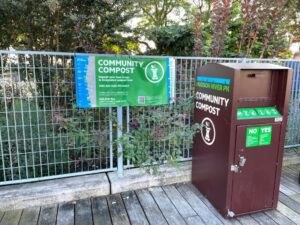In gauging the promises of climate rescue by corporations (and the NGOs they populate), citizens must reflect upon the track record of past technological projects peddled as the cure to all that ails us. EVs, wind turbines, and solar panels are touted as absolutely necessary to save the climate. Yet the boondoggle of the ethanol “industry,” the “cash-to-clunkers” program, and other much-ballyhooed technological solutions reveal a history of big promises concealing negative returns. This is glaringly apparent in the recycling industry.
Recycling Troubles
Americans widely assume the plastics, glass, metal, and other waste products they discard are recycled and reused. Unfortunately, this is often not the case: Major problems continue to prevent most of these substances from being efficiently recirculated. Since “green” construction, EVs, windmills, and solar panels all contain these same materials, the issue of reuse via recycling relates to their sustainability.
The United States has failed to achieve the high rates of recycling of some products attained in Europe. Europeans pay more for landfill disposal and have widely adopted bottle deposit and multiple-stream collection practices that improve consumer compliance and sorting at the source. The United States has lagged in these areas, but also faces problems moving recyclables long distances, a lack of industry consolidation, and weakening market demand for recyclables. These industry challenges are not diminishing but increasing.
Glass, plastics, and metals are chief categories of recycling opportunities. Each presents unique problems, yet all encounter shared hurdles of economic efficiency that have stalled American recycling programs to the point of near irrelevance.
Glass
Glass is arguably the easiest substance to reuse, as it can be processed into “cullet,” a crushed-glass product mixed with virgin glass to manufacture new bottles. Yet glass also poses unique challenges. It gets shattered during collection and transport, which contaminates other renewables such as cardboard, as well as the glass itself. Glass is quite heavy, making trucking costs (economically and environmentally) high. Glass is hard on equipment, increasing plant and machinery costs. Only about 40% of glass in single-stream recycling collections is recycled. A mere third of all US glass is recycled, with some ten million metric tons of it being dumped into landfills annually. Glass is also less environmentally destructive on disposal because it is inert and does not produce leachate (chemicals that leach from landfills) or methane. So it’s often cheaper to just landfill glass rather than recycle it.
Metal

(Photo by Patrick Pleul/picture alliance via Getty Images)
Metal recycling focuses mostly on aluminum, steel, and copper, and presents its own challenges. Appliances and other products must be dismantled to meaningfully extract recyclable materials, especially the burgeoning volume of electronics such as discarded cellphones and laptops. Virtue-signaling corporations publicly proclaim recycling commitments, but there is insufficient capacity to meet those goals. Only about 19% by volume of durable goods were recycled in 2018. Only 30% of aluminum cans were recycled. Many cities do not implement expensive Materials Processing Facilities (MPFs) and find it cheaper to simply landfill cans collected from consumers.
Plastic
Rates of plastic reclamation are so low globally that the phrase “plastic recycling” is essentially oxymoronic. The problems with recycling plastic have long been known – many companies have been accused of “greenwashing”: misleading the public into believing their products are recyclable when they are not. There are thousands of different kinds of plastic in use, and they can’t be mixed when remelted. Plastics degrade after one or two uses, and new plastic is cheap and easy to manufacture. The plastics industry proposes to triple production by 2050, but less than 5% of plastics are remanufactured into new products. Greenpeace presented a study that found that the more plastic is reused, the more toxic it becomes – to marine and human life, in food and water as well as landfills.
Renewable Energy, Isn’t
Into this chasm of failures now leaps the hasty, climate-urgency-fueled push to manufacture whole new waste streams of unrecyclable manufactured junk, falsely labeled “renewable energy products.” Wind turbines, EVs, biodigesters, solar panels, and other techno-gadgets touted as climate-saving all end up in the dumpster. Manufacturing inputs for these goods include coal energy, mined metals, and numerous pollutants, all of which are simply ignored by proponents. Similarly, the externalized costs of disposal are simply dumped on future generations to sort out.

(Photo by: Deb Cohn-Orbach/UCG/Universal Images Group via Getty Images)
This is more than just a recycling issue: It is extremely costly to shift inefficient technologies and infrastructures once they are implemented, as is demonstrated by single-stream collection methods and the shortage of large processors of glass, metal, or plastics. What are the pollution costs of installing electric charging stations for EV cars, changing the grid to accommodate surges of energy demand when solar panels or wind turbines are offline, or shifting an entire industry to ethanol production? What are the economic and environmental costs of transforming those failed systems after they are hastily implemented?
Recycling Boondoggles
These different recycling industries share common economic hurdles: a lack of market, limited processing facilities, high transportation costs, a need for capital-intensive technological investments, and insufficient large-scale processors. They also share in the illusion that waste products are being reused. Promises made politically, unachieved, are then left for the next generation to figure out. The hucksters for climate technology are off and running, seeking bigger and better technological promises to break.
In the name of climate urgency, corporate peddlers of greenwashed, cure-all solutions perpetuate yet more profiteering and pollution. EVs and solar panels pollute the planet and generate massive amounts of waste, most of which will never be reclaimed by the recycling industry. In ironic contrast, the cycle of lies spewed by corporations profiting from bogus claims of environmental benefit appears eternally renewable.

